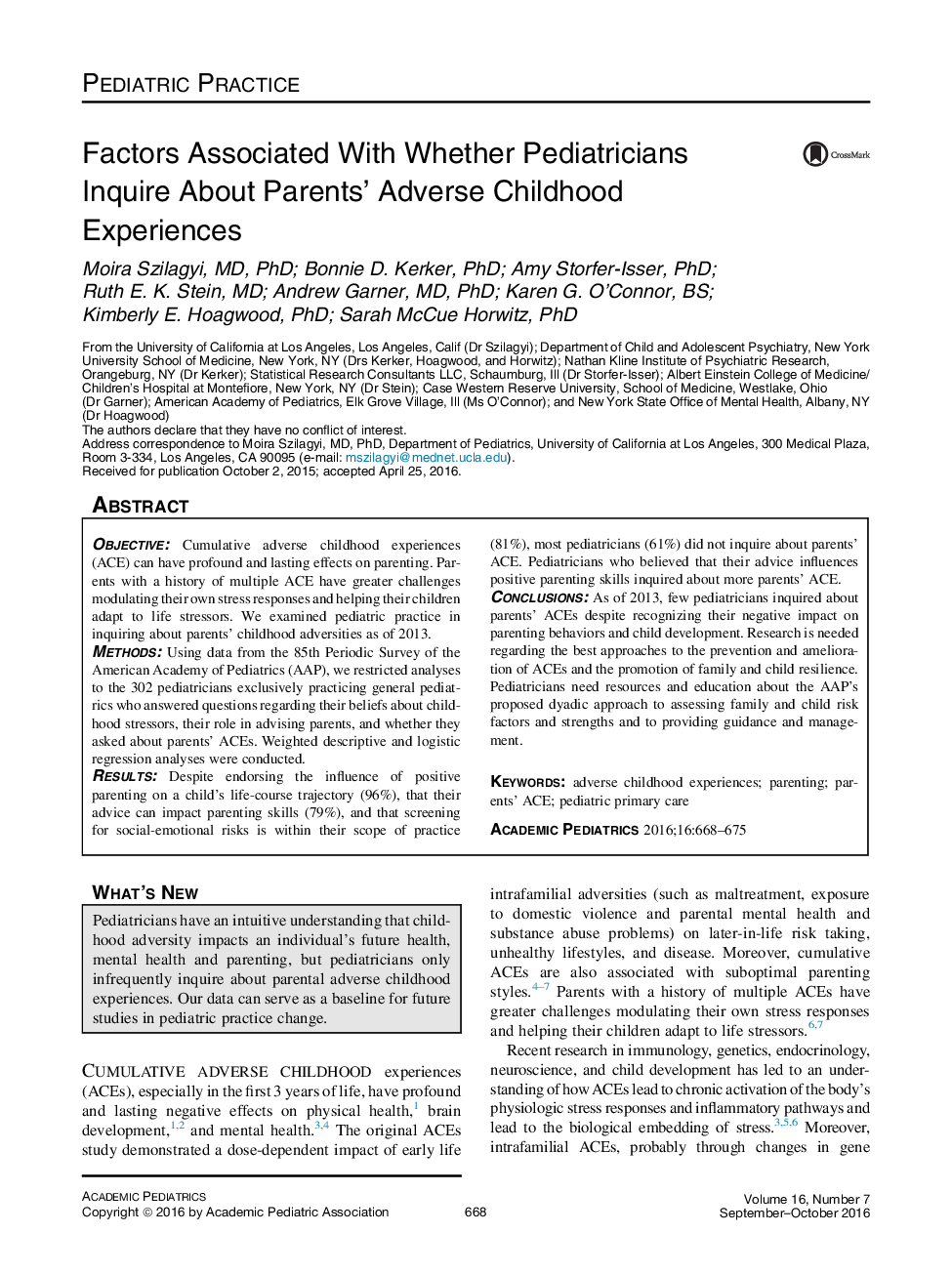| Article ID | Journal | Published Year | Pages | File Type |
|---|---|---|---|---|
| 4138845 | Academic Pediatrics | 2016 | 8 Pages |
ObjectiveCumulative adverse childhood experiences (ACE) can have profound and lasting effects on parenting. Parents with a history of multiple ACE have greater challenges modulating their own stress responses and helping their children adapt to life stressors. We examined pediatric practice in inquiring about parents' childhood adversities as of 2013.MethodsUsing data from the 85th Periodic Survey of the American Academy of Pediatrics (AAP), we restricted analyses to the 302 pediatricians exclusively practicing general pediatrics who answered questions regarding their beliefs about childhood stressors, their role in advising parents, and whether they asked about parents' ACEs. Weighted descriptive and logistic regression analyses were conducted.ResultsDespite endorsing the influence of positive parenting on a child's life-course trajectory (96%), that their advice can impact parenting skills (79%), and that screening for social-emotional risks is within their scope of practice (81%), most pediatricians (61%) did not inquire about parents' ACE. Pediatricians who believed that their advice influences positive parenting skills inquired about more parents' ACE.ConclusionsAs of 2013, few pediatricians inquired about parents' ACEs despite recognizing their negative impact on parenting behaviors and child development. Research is needed regarding the best approaches to the prevention and amelioration of ACEs and the promotion of family and child resilience. Pediatricians need resources and education about the AAP's proposed dyadic approach to assessing family and child risk factors and strengths and to providing guidance and management.
